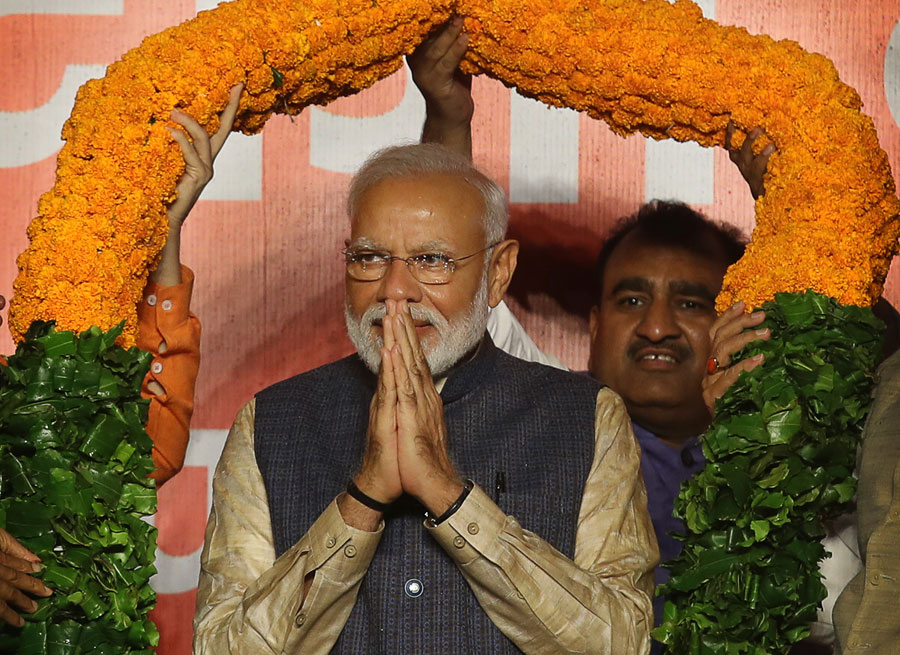The Narendra Modi-government must confront head-on multiple economic problems as the euphoria of re-election subsides, analysts said.
Top on its agenda will be job creation, higher growth and more investments, besides the need to check the fiscal deficit and removing farm distress.
“The decisive election results will propel India’s growth pace to the next orbit and drive the transformation of the country,” Vikram S. Kirloskar, president of the CII, said.
However, the immediate priority would be to arrest the economic slowdown and nurse the nation’s financial sector back to health.
The economic growth fell to its slowest pace in five quarters at 6.6 per cent in the third quarter (October- December, 2018), forcing a lowering of the growth forecast for the fiscal to 7 per cent in February from 7.2 per cent in January.
The first set of macro data for the new government arrive on May 31 in the form of fourth-quarter GDP numbers, which may show further deceleration to 6.4 per cent.
Ajay Bodke, CEO and chief portfolio manager of Prabhudas Lilladher, said the government needed to urgently address the slowing down of growth, faltering consumption, moribund private investments and weak exports. “With limited fiscal space and build-up of massive off balance sheet liabilities, a focused effort to address a strong and sustained revenue mobilisation is necessary,” he said.
Veteran industrialist and Godrej Group chairman Adi Godrej said the new government was expected to take steps to ensure that India’s gross domestic product (GDP) growth improved. He explained that one such area was the corporate tax.
“Our corporate tax rates are some of the highest in the world, they need to be brought down. The government had promised that corporate tax would be brought down to 25 per cent.”
Sandip Somany, president of Ficci, said, “There is an urgent need to bring investments on track and boost consumption for better GDP growth from the current 7 per cent level, which will help in generating more jobs and taking care of the rural distress.”
Consumption concern
The slump in consumption has to be addressed immediately. Data show that the sales of automobiles across segments have fallen 16 per cent in April to touch the lowest mark in eight years, while domestic air travel in April contracted 4.5 per cent for the first time in nearly five years.
The industrial output growth slowed to a 20-month low of 0.1 per cent in February, mainly because of contraction in the manufacturing sector.
In a bid to stimulate demand, the Modi government would be tempted to breach the fiscal discipline and take steps to boost consumption and also to fulfil its poll promises.
The current roadmap seeks to bring down the fiscal deficit to 3 per cent of GDP by 2020-21.
“We need to have a fiscal stimulus to boost demand. For that, we need to take a relook at the fiscal consolidation roadmap. We also need to incentivise domestic savings and increase public spending as measures to rev up the economy,” professor N. R. Bhanumurthy of the National Institute of Public Finance and Policy, said.
Job creation would be another key area of concern for the government. Data put out by the Centre for Monitoring India Economy show the number of unemployed increased by 11 million in 2018.
Further, trade deficit remains on the edge as export growth leaves much to be desired, while imports continue to outgrow exports.
The trade war between the US and China is expected to impact global trade and the country must trudge carefully to take advantage of the market opportunity while at the same time prevent dumping of goods.










